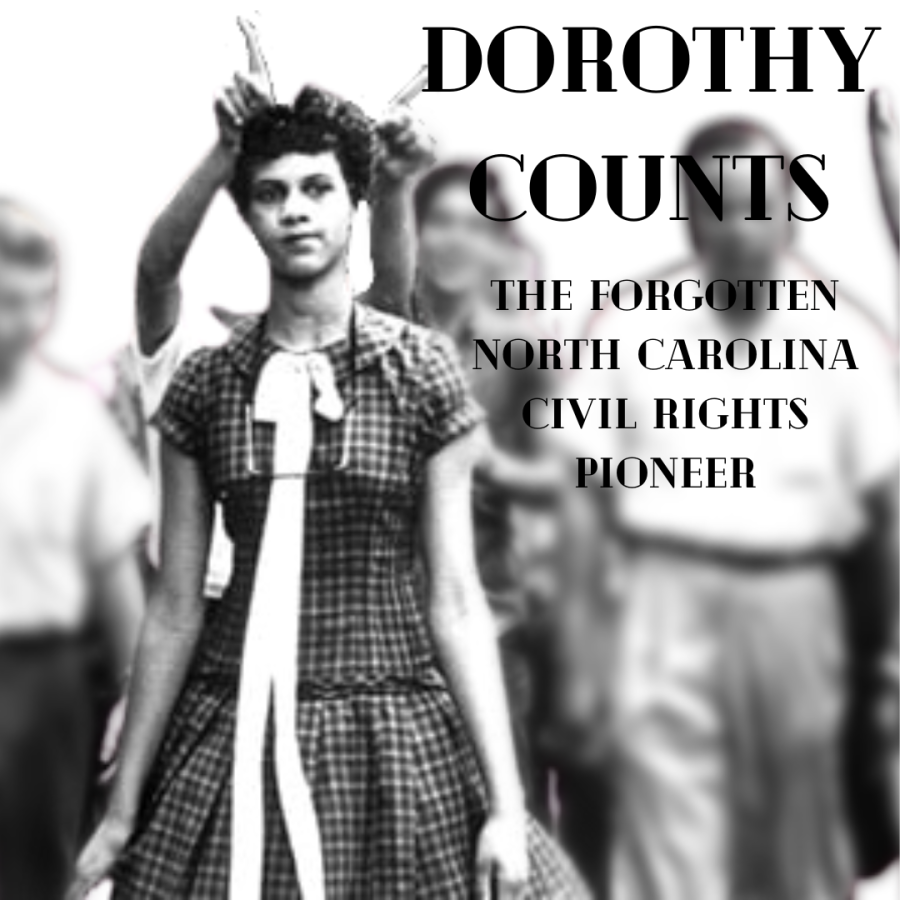Dorothy Counts: The Forgotten NC Civil Rights Pioneer
While it feels so easy to take it for granted, education is one of the most important, and tragically, most neglected human rights in the world. The ability of the individual to receive a proper education quite literally determines the direction their lives take. While these days it’s easy to allow the times before modern day students were born to feel like a forgotten time, it was really only 60 years ago that schools were still segregated. Schooling, among the most basic privileges in sophisticated countries, was effectively separated, and to some extent denied, to African Americans. It’s important to take a look at the men and women who refused to let this status quo remain, who fought for the right of children to learn together, and to learn equally. Dorothy Counts did that as well as anybody, right here in North Carolina.
Growing up in Charlotte, Dorothy was a child in a progressive household. Both of her parents maintained jobs, and her father was a professor of philosophy at the local university. She grew up with the value of education being heavily emphasized, and because of her father was determined to get the best one possible. In 1956, The Pearsall Plan was passed in North Carolina, a rather late solution to the 1954 Supreme Court Ruling making segregated schools unconstitutional. Part of this program allowed 40 black students from around the state to transfer to a white school, and begin integration. This was no real solution, however. The Pearsall Plan was a very halfhearted solution to integration, one clearly meant to continue segregation by isolating the few black students allowed to attend white institutions and making the process as strenuous as possible. But for the Counts, this was no deterrent.The family applied Dorothy into the program, where she was accepted into Harry Harding High School, in Charlotte. Only 1 of 40 students around the state, she was completely alone. And on September 4, 1957, at the age of 15, it was time for her first day of school.
The weight of the youth black community on your shoulders is no easy feat for a child. As Dorothy entered the campus, her car was blocked from getting close to the campus by protestors, (mainly students), forcing her to get out and walk to the school. Nearly 300 students surrounded her, jeering and laughing, calling her slurs, even spitting on her. She had no allies here. Even the adults were reported urging them on, even chanting “keep her out”, as she made her way to do nothing more than pursue her education. Still Dorothy marched on. Years later, She would recount her father whispering in her ear the words “Hold your head high. You are inferior to no one.” This determination, the pure grit and power of will to keep going when a crowd of 300 screams in your face to turn around, is the mentality that effectively ended segregation.
Count’s time at Harding High School lasted less than a week. In her time there, she was berated constantly, by her classmates and even her teachers. The more progressive students simply refused to speak to her; the majority of them harassed and even attacked her. She reported being hit with school supplies, being prohibited to sit with the other students, and even having her food spat in. The final straw came when a group of students attacked her family’s (thankfully empty at the time) car with a baseball bat, bashing in the windows and doors. Dorothy and her parents could no longer consider themselves safe, and they withdrew her from the school. But it didn’t matter; her time at the school may have been short but her bravery was immortal. Images of her walking into school amongst the crowd were printed everywhere- her willpower became a symbol for integration movements everywhere.
James Baldwin, a nationally famous black writer, cites Count’s fearlessness in that moment as a huge inspiration for him. A picture of her trudging through the crowd, head held high, won the 1957 World Press Photo of the year. Right here in our home state of North Carolina, one 15 year old girl refused to be denied, and her bravery served as inspiration for students around the country. Walking through the doors of your local high school every day and not seeing only those who look exactly like you was a long and difficult process, one that Dorothy Count’s role in will never be forgotten.
Your donation will support the student journalists of Enloe Magnet High School, allowing us to cover our annual website costs. We are extremely grateful for any contribution, big or small!

(He/him)
Louis Huler is a senior staff writer and captain of the track team. He enjoys spending time with friends, Listening to music, and growing his...











